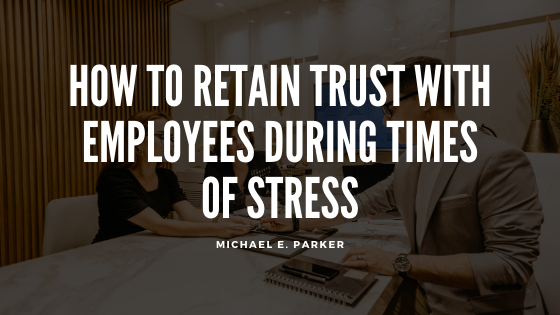Leaders have witnessed plenty of change and challenges on their teams over the last year. COVID has forced many people to work remotely for the first time. Leaders have had to make cuts to their staff, reassure people all while trying to maintain a positive and engaging culture while working remotely. Trust has become crucial. Although, some leaders have found that their bond with their employees is more fragile than ever before. If one of your goals over the next year is to retain trust with your staff, the following are a few pieces of advice that will help.
Be Consistent and Honest
During difficult times, people are looking to you as an example. What they want most are honesty and consistency. They want someone who has always exercised consistent behavioral patterns. People like to know what to expect, and are more willing to reach out to someone who is consistent rather than flaky. If you can keep up the same attitude during times of stress, people are more likely to trust you.
Honesty is also an important component of trustworthiness. It’s okay to admit that there’s a lot of uncertainty. If people can tell you’re bluffing or using forced optimism, they’re not going to trust you.
Focus on Empowerment Rather Than Micromanagement
Not many people like to feel micromanaged and most employees view micromanaging as a lack of trust in them, which leads them to distrust you. Most of the time, micromanagement stems from a fear of messing up rather than a desire for control. You can trust your employees. Rather than trying to manage all their projects yourself, take a step back. Consider implementing courses or trainings that will better educate and empower them to make good choices regarding their work.
Don’t Be Afraid to Accept Blame or Give Credit
Nobody can be perfect all the time. Although as a leader, it may be tempting to blame those underneath you, accepting the blame yourself will build trust with your employees. After all, nobody appreciates being a scapegoat.
On the flip side, don’t accept all credit, either. Even if you played a role in a project, make sure everyone gets the recognition they deserve. You didn’t do it alone! Crediting others goes a long way in building trust. Feeling appreciated helps employees feel more secure in their role and happy with their work, too.
It’s a very challenging time to be leading a team. However, you can continue to build and retain trust through being consistent, reducing micromanaging, and crediting others.

